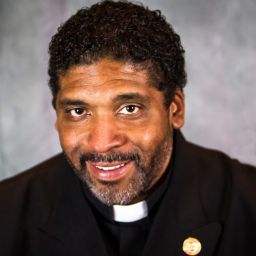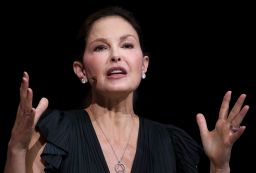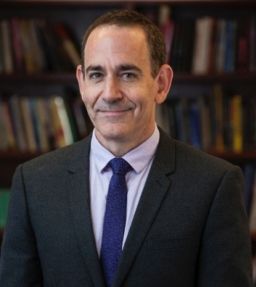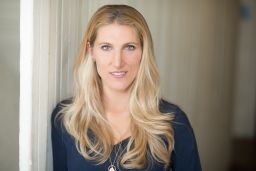After nearly five breathless days of vote-counting, the American people – and the world – got the news Saturday: Joe Biden would be the next president of the United States. So, where to now, nation? CNN Opinion asked 26 commentators to consider the question: What does the outcome of this election say about America in 2020? The opinions are their own.
Penn Jillette: You have one job, Joe

Okay, so it’s not over, there will be court fights, but Joe has won. I used to identify as Libertarian, I used to have opinions on government. I used to think I disagreed with Joe Biden on most everything, but I voted for him. I wanted the other guy fired and I wanted Joe hired and for me the job description is now very simple. I need Joe to love all the Trump supporters. I don’t care if Joe raises taxes. I don’t care if Joe helps add stupid, counterproductive regulations. I don’t care about anything except love and kindness.
I’ve never seen Joe as a hero, but now we need a Nelson Mandela. We need MLK. And it needs to be Joe. We need someone who can love the people who hated him and lied about him. He must rise to the occasion.
Half the country voted for Trump. These people did not buy a pig in a poke like in 2016, these were people who knew what they were voting for and voted anyway. It’s appalling and horrifying, but these people are not monsters. These people are our neighbors and our relatives. These people are us, and we need someone who can teach us to love them again.
Joe started saying the right things already, but he has to go all the way. Please, Joe, make me embarrassed to say anything bad about Trump supporters. Please fill all our hearts with love for each other. Please. This is Joe’s chance to have the situation make him better than he has any right to be. Please teach us to love and understand and move on together.
You have one job, Joe – love all of us.
Penn Jillette, a writer, television host and frequent guest on a wide range of shows, is half of the Emmy Award-winning magic act duo Penn & Teller. His most recent book is “Presto.”
Luvvie Ajayi Jones: A mirror is being held up to our nation’s face

Donald Trump, the inglorious captain of this sinking ship, has revealed the United States’ flaws, which can never be un-seen. In America—a nation that is supposed to be a global leader—this year has been a raging dumpster fire, stoked by the whims of a raging narcissist of a president, a man with the emotional intelligence of a spoiled kindergartner.
Yes, Joe Biden will be the 46th president, but the fact that nearly half of the Americans who voted chose Trump is telling. The last four years have held a mirror up to this country’s face, and the ugly reflection will be unyielding until we do something to fix it. Over 70 million people still voted for – or didn’t care enough to vote against – Trump’s cruelty. It is further proof that this land and all its systems are broken. And White supremacy is at the core.
This election should have been such a quick landslide loss for Trump and the Republicans. Instead, we had to sit tight to make sure all votes were being counted. We had to watch and listen to Trump spew baseless claims of voter fraud. We watched Trump rally his base with lie after lie and tweet after tweet. And as this happened, the other half of America held its breath, waiting for confirmation that the man who many saw as the walking epitome of the last gasp of White supremacy would be on his way out of the White House.
America is broken and it needs to be fixed.
Luvvie Ajayi Jones is an author, speaker and podcast host who bridges the intersection of comedy, media and justice. Her book Professional Troublemaker: The Fear-Fighter Manual drops March 2, 2021.
George Takei: What we have just regained

“At long last, have you left no sense of decency?”
These words, uttered on June 9, 1954, by a lawyer named Joseph Nye Welsh, marked a turning point in Senator Joseph McCarthy’s infamous hearings. In a single moment of clarity, McCarthy’s worst excesses, fear mongering and bullying were laid bare by a simple call for decency.
This election, the American people once again called the question of basic decency, and they found it utterly wanting in Trump, who from day one debased his office with his lies, pettiness, ignorance and incompetence. For no matter their politics, the American people can stomach only so much of an indecent fellow. Deep within us is an abiding sense that our leaders ought to reflect the values we hope to teach our children. And while some may still be blinded and trapped within his cult of personality, most Americans know that Trump isn’t a decent man.
Enter Joe Biden, who even his biggest critics admit is wholesome and good at his very core. There were no optics or spin needed. Decency was on the ballot in the form of Joe Biden, and through his election, we have regained our deepest sense of it.
George Takei is an actor and activist and the creator of the Broadway show “Allegiance.” Follow him on Twitter @GeorgeTakei.
Danielle Pletka: America between the coasts is alive and well

In the wake of former Vice President Joe Biden’s tight victory in the presidential race, it will be tempting to look at the razor thin margins across the map and declare the nation a house irretrievably divided. But there are other more cheering conclusions to be drawn. American democracy is alive and well, the complaints of partisans notwithstanding. Votes were counted (and will be recounted), courts will field litigants, state officials will do their jobs. The process was far from smooth, and beyond frustrating to watch, but that is a democratic system in action.
Better still, and despite strenuous efforts to pigeonhole Americans into their hyphenated identity groups, Blacks, Latinos and many other non-White voters walked into their voting booths (or post offices) with diverse ideas about the best man to lead the nation…and voted for Republicans in unprecedented numbers. They did not vote by tribe, they voted for – and against – policies that mattered in their lives. Are there still divisions among us? Of course, there always will be. But more than 65% of eligible Americans believed in the power of their vote, and our democracy.
Finally, how heartening it is to be reminded that journalistic, tech and business elites do not call elections, and that money – notwithstanding the hundreds of millions wasted in trying to do so – cannot buy a seat in Congress. There is an America between the coasts, and it’s alive and well and kicking.
Danielle Pletka is a senior fellow in foreign and defense policy studies at the American Enterprise Institute. She is the co-host of the podcast, “What the Hell Is Going On?”
Baratunde Thurston: We have passed this phase of our democracy stress test

For the past four years, I have been holding my breath, in a defensive crouch and bracing for the worst. I’ve expected some fresh horror, embarrassment or trauma to find its way onto one of my screens, and it’s been exhausting. My soul has been clenched and now, with the election of Joe Biden and Kamala Harris, my heart is lifted, and I can exhale.
I had dreamed, briefly, of an instant, massive, electoral rebuke of the outgoing president. I momentarily let visions of a landslide dance in my head. That did not happen. This is still the United States of America that elected the 45th president to begin with, still the nation that only decided in 2020 that Black lives might matter, still the nation too-long governed by GOP minority rule, thanks to the Electoral College, gerrymandering, voter suppression and an open-armed embrace of misinformation and White supremacy.
But now, at least, we have a fighting chance. Once again, overwhelming action by Black voters has dragged America, partially kicking and screaming, back from beyond the brink and toward a more perfect version of our union. Indigenous and Latinx communities showed up. Honestly, everyone showed up, from every race and every place, to flex their power and reclaim our democracy.
This was a victory not just for a Democratic ticket, but for our democracy and sadly, for basic decency. Now it’s up to all of us to continue to invest in and defend it. We are ready to move forward.
Watching Vice President-Elect Harris and President Elect-Biden give their victory speeches, I know they are ready to heal and move forward too. Let’s join them. Let’s stay engaged in the process of self-governance well beyond this election. Let’s be the nation we’ve always said we could be.
Baratunde Thurston is a storyteller, activist, and creator/host of the podcast, “How To Citizen with Baratunde.” Follow him on Twitter.
Judy Gold: A beacon of progress…in Chuck Taylor All Stars

Like a lot of people, Biden wasn’t my first choice. To me, he was a wise and empathetic grandpa who gave good hugs. Then he chose Kamala Harris as his running mate. My excitement was tempered by exasperation that we needed an older White man to pass the baton to a woman. But Kamala isn’t just any woman. She’s a woman of color, a child of immigrants with a name drawn from Indian mythology. That gave me hope for where this country is headed today.
Another woman of color, Stacey Abrams, galvanized the masses to vote. And that gave me more hope. Yes, we are a country divided, but what this election says about America is that even when you feel like you’re screaming into a black hole, your voice can be heard. Your voice counts.
The 19th amendment was ratified exactly one century ago, but it took longer for women of color to enfranchise. This country was built—shamefully– on the backs of African Americans. But today this country will grow and prosper through the power and generosity of women of color. Yes, we’ll have another old White guy as our next president. But a heartbeat away from the presidency— prepared and ready to lead the United States at a moment’s notice—will be a strong, tough, smart, progressive African and South Asian American woman in Chuck Taylor All Stars married to a nice Jewish guy who is undoubtedly verklempt. And that makes me heartened, hopeful and proud. I’m ready for that hug, Joe.
Judy Gold is a stand-up comic in New York, actress, writer and winner of two Emmy Awards. She is the host of the podcast “Kill Me Now,” available on iTunes or at judygold.com/podcast. She is also the author of “Yes I Can Say That.” Follow her on Twitter @JewdyGold.
Rev. William J. Barber II: We can have a genuine democracy

Since Donald Trump eked out an Electoral College victory in 2016, he has proudly displayed a US map that highlights in red the counties he won despite losing the national popular vote to Hillary Clinton by more than 3 million. The point of the map, like the financial statements he used for years to apply for credit, was to claim legitimacy. A President who never had the support of a majority of Americans pretended to represent most of the country. But the red mirage was always an illusion.
In Wisconsin, Michigan and Pennsylvania, Republican-led legislatures fought hard to help Trump maintain this appearance of legitimacy on Election Night by delaying the counting of overwhelmingly Democratic mail-in ballots. But elections are not decided by candidates or state legislators. In a democracy, elections are decided by the people.
Donald Trump did not create the myth of a “red” electoral map. He simply exploited it. But 40 years after Republicans strategists began using what they called “positive polarization” to pit some Americans against their neighbors in battle ground states, Trump’s extremism has revealed a larger and more diverse electorate that has the power to re-shape priorities in American public life.
More than 74 million Americans voted to repudiate Trumpism, and fusion coalitions led by poor and low-income voters in North Carolina and Georgia demonstrated their power to make races competitive that Republicans could until recently count on winning without a fight.
From living wages to health care, immigration and the climate crisis, the most pressing issues we face are not red or blue issues, but moral issues that compel us to face who we are and who we want to become as a nation. This election has revealed that, while the forces of division are strong, the possibility of a genuine democracy is stronger still. Our task now is to build together an America that works for all of us.
The Rev. Dr. William Barber II is president of Repairers of the Breach and the co-chair of the Poor People’s Campaign: A National Call for a Moral Revival.
Poorna Jagannathan: I am not American, but I am America

There’s a particular blue. In my head, I call it tower blue. It’s the color of the sky on the horrendous day when the Twin Towers fell. I associate that blue with an intense love, and a sense of belonging to a city–to a country–where until then I felt like a guest. I associate that blue with my epiphany: the actions of one can affect another; our destinies and humanity are interconnected. It was the day I felt “American,” despite not being a citizen. Belonging is hard to describe. But when it’s threatened, it comes into clear focus.
I came here in 1991 for college. An immigrant. I worked in marketing for 15 years but spent every weekend taking acting classes and working as an usher, so that I could see plays. I had no connections to Hollywood. More than 25 years later, I report to work on a set to play an Indian immigrant mom raising her teenage daughter in Southern California. That’s America: a place where you are never too late and the impossible is possible.
Now, I look at the redness on the electoral map—it covers so much of this country. I’m grappling with the fact that rather than inviting me in, this red carpet might be there to usher me out—to say I’m not wanted here. But the blue speaks loud and clear: and it says I am needed. People of color, immigrants, anyone who has had to fight to belong are actually the ones who remind the rest of the principle of democracy. That until we are equal, equality will be elusive. That until we belong this country will be divided. That our dream counts. My America is full of people who are needed.
It feels in this fraught, post-election period like there’s no middle ground anymore and that the ground beneath my own feet is shifting, unstable. But then I see that half Indian, half Black woman standing on that stage in her white suit, meeting America as its Vice President-elect– and I can’t help but keep my eyes trained on that blue sky.
Poorna Jagannathan is an actress and producer. She is currently a lead on Netflix’s “Never Have I Ever,” and has been on shows like “The Night Of,” “Ramy” and “Big Little Lies.” In response to the 2012 gang rape and death of Jyoti Singh Pandey, she initiated and produced the Amnesty Award winning play “Nirbhaya,” written and directed by Yael Farber.
Nicole Hemmer: Will Americans lose even more faith in government?

A partial explanation for the big polling misses in 2020 — and the polls did miss, substantially more than 2016 — centers on the low-trust voter, who believes the system is corrupt, rigged or not interested in helping people like them. It’s a demographic the Trump campaign successfully cultivated over the last four years, using the President’s permanent campaign to find and register low-trust voters and rally them to the polls.
The result of this year’s election, though, will almost certainly continue to degrade their faith in institutions — along with the rest of Americans. A Democratic president hamstrung by a Republican Senate will face a hard limit on the kind of structural reforms the country desperately needs, from voting rights to court reform. And other much-needed policies hugely popular with the American people, from immigration to green energy to gun safety, will almost certainly be blocked by the Senate if it stays Republican.
Most Americans want a functioning government that passes policies they like — they just don’t believe that will actually happen. And if Democrats fail to eke out a victory in the Senate special elections, it probably won’t.
Nicole Hemmer is an associate research scholar at Columbia University with the Obama Presidency Oral History Project and the author of “Messengers of the Right: Conservative Media and the Transformation of American Politics.” She co-hosts the history podcast “Past Present” and “This Day in Esoteric Political History.”
Garry Kasparov: America cannot pretend that the last four years never happened

Joe Biden’s victory is America turning back from the brink. He is a symbol of moderation, the embodiment of America’s rejection both of Sanders socialism and Trumpist venality. While the highest turnout since 1900 is encouraging, the country is still dangerously divided, leaving it vulnerable to another demagogue. America cannot pretend that the last four years never happened.
Republicans are holding the Senate and gaining in the House, a warning to Democrats that identity politics and a radical progressive agenda are best left to only the bluest enclaves. Voters told Biden to stick to his narrow mandate as a repairman, not play savior. Close the loopholes, codify the checks and balances, reform the election process, dam the flood of dark money and foreign influence. Return elections to policies, not personalities.
The election wasn’t just about ideology, or Covid or Trump fatigue. Americans want their government to represent them, and for America to rejoin the world and to stand for the values of its founding. This will be a heroic mission precisely because it is so unassuming, and that’s why Joe Biden could be the hero we need. If his presidency is a success, American democracy will never again be on the ballot.
Garry Kasparov is the chairman of the Renew Democracy Initiative and the Human Rights Foundation and a former world chess champion.
Sharon Stone: A message from women

We have been tempted, tormented, traumatized and teased. We have been hurt, humiliated, broken and diseased. Yet, we have been asked to believe. Just what we believe is yet to be known. Deadly sins, joyful wins, faceless grins, typhoons, monsoons, earthquakes, fires, monsters within, with nothing to give. Divided, united, requited, trans-lighted, we stand, so tall, sometimes with little left, still ready for the call; we are a nation, one built for us all. It feels almost useless, brutal and clueless. Yet, we are so fruitful, beautiful and cute, and yeah, full of news for you all. We won’t be crushed by the desire to hush us. We won’t go down with the uptown, the push down, the put downs. We are the United, the Rising the Together WE Stand not the put down the smasher of our loved common man. We will turn up and show up and take this country, this land. Turn it around, give love to our towns and shake up and break up the lost, the unfound. We will love them to submission, soothe the souls of their condition, this is the nation that prides itself on freedom, that will never be your kingdom. So: we pack up your showboats, your show wife, your show and no tell and go somewhere, yeah there where they wanted you to sell them our decency and our country. Because we, yeah, we, United We Stood, and protected our hood, with dignity and justice for ALL.
Sharon Stone is a mother, actress and humanitarian.
Mikki Kendall: Crisis averted…for now?

Calling ourselves a free country means working towards freedom for all; not just for those lucky enough to be somewhat insulated by privilege. This year it looks like America will have to reckon with that reality, instead of pretending exceptionalism is equality.
America has consistently chosen to make politics into a crisis every few years instead of an ongoing effort to fulfill its promises to itself and the world. The impact of that attitude is a slow-motion avalanche of deprivation, especially for marginalized communities. The problems pile up until they reach a breaking point, and then American voters are forced to focus on harm reduction instead of advancement.
When an election cycle is about shielding the most at-risk people from some of the impact of otherwise catastrophic policies, then can we genuinely call it a victory? Or are we merely putting out part of a fire and leaving the rest to burn?
This year America chose to save itself from an immediate crisis, but there is still a long hard road ahead to clean up existing problems and to prevent creating new ones. We can only hope that the American Dream begins to come true, and that some form of healing is possible.
Mikki Kendall is the author of “Hood Feminism: Notes from the Women That a Movement Forgot.”
Mandy Patinkin: America’s myth can be its reality

In 2020, decency was on the ballot, and more Americans voted to defend it than have voted for any candidate in history. In a year when hundreds of thousands of Americans have perished to a global pandemic, and millions more fear for their livelihoods, we have elected a President whose empathy and capacity to sit with suffering rank among his chief hallmarks. On January 20, 2021, Joe Biden and Kamala Harris will be sworn in as president and vice president—the two embodying a series of “firsts” in their new roles.
And we know we have work to do. The election shone a spotlight on the polarization, distrust and enmity toward neighbors and fellow citizens that have defined these last four years. President Donald Trump got more votes this year than he did in 2016. But our problems are not confined to one man, and neither will they end with his departure.
Our democracy survives, but so do the fault lines that imperiled it. Healing a broken nation will not be the work of one politician or one party. I truly believe that what binds us together as Americans is stronger than what divides us, and that, together, we can make the myth of what America can be a reality.
Mandy Patinkin is an actor, singer and humanitician (a word he is aware he has made up). Follow him on TikTok, Twitter and Instagram.
Ariel Dorfman: We must dare to unleash our courage, energy and compassion

Is the nightmare finally over?
Even in the midst of this splendid dawn, even as we awake with relief from the dark fever of a seemingly endless night and celebrate, along with multiple dancing citizens, that the republic is not beyond redemption, we must remember that other nightmares await us.
If it were only a matter of the damage Trump will likely inflict before he surrenders the Presidency. Or his legacy of a worsening pandemic, a degraded environment, a wounded democracy, a land racked by violence, racial injustice and hatred of immigrants.
The persisting nightmare is that, ignoring the culture of corruption in Trump’s White House, his callousness and serial mendacity, over seventy million estranged fellow Americans almost reelected him, a man whose own niece, psychologist Mary Trump, calls a “sociopath.” And one who embodies a lingering malignancy in America’s DNA.
To convince enough of them to journey with us to a more luminous future is the major challenge ahead. For this, we desperately need radical change and a shift in consciousness, to look together into the mirror of our national identity and recognize its most twisted manifestations, above all the myth of exceptionalism.
In order to truly awaken and heal we must continue to unleash the courage, energy, joy and, yes, compassion with which rebellious millions managed to defy fear and keep hope alive in these traumatic times.
Ariel Dorfman is the author of “Death and the Maiden,” and more recently, the novel “Cautivos” and a children’s book, “The Rabbits’ Rebellion.” Early next year, he will publish “The Compensation Bureau,” a novella about the apocalypse. He and his wife live in Chile and in Durham, North Carolina, where he is a distinguished emeritus professor of literature at Duke University.
Sean Penn: Our new heroes

Election campaigns, even in the calmest of times, shine a white-hot light on division. They are passion plays staged by politicians, the news media and advertisers, powered by fear and loathing.
In 2020, with the pain of the American people intensified by a pandemic and economic agony, the presidential race was dominated by stories of enemies who traveled in packs, drawing courage from their partisan “communities”—identified by themselves or others: “deplorables.” “liberals,” “White nationalists,” “socialists,” “MAGAs” and so on.
But there were few symbols of individualized courage who sustained notice. Where was Martin? Where was Medgar? Who were Bobby and John? Who was Muhammad Ali? In this culture of complaint, we travel as tribe members, rather than as persons. But not everyone.
For me, this awful period of American history is redeemed by the shining face of Emma Gonzalez, who in 2018, at only 18 years old stepped briefly into the national spotlight as an advocate for sanity on gun control. She and her fellow students who survived the Marjory Stoneman Douglas school shooting in Florida that February had no time to organize as a pack.
They stepped forward and stood up as individuals in one of the most extraordinary shows of poise and courage I have ever seen – a heroism any adult could ever aspire to. They are the next generation. We have survived this noisy election, but our long-term survival will depend on our ability to listen to young heroes like Emma.
Sean Penn is an actor, writer, producer, director and author. He is the co-founder of CORE (Community Organized Relief Effort), a non-profit dedicated to saving lives and strengthening communities in crises around the world, and which is currently focused on Covid-19 relief.
Oren Cass: Don’t kid yourself about what elections reveal about America

Election results determine who governs us, they do not tell us who we are. America was, and is, the nation that elected George W. Bush in 2000 but could just as easily have elected Al Gore. Roughly the same electorate who made Barack Obama a two-term president chose Donald Trump at its next opportunity, though with the slightest of tweaks in a few states we could be approaching the end of Hillary Clinton’s first term. Assessing our national condition based on whether a few thousand votes went one way or the other in Arizona, Georgia, Nevada, and Pennsylvania on Tuesday is the rankest of punditry.
People like to see America as an Obama or Trump or Biden nation because it allows them to feel proud when their side is in power and appalled when it is not; to imagine that others with whom they disagree are a solvable problem, just one blue or red “wave” away from disappearing for good. In reality, America is an Obama, Romney, Clinton, Trump, Biden nation all at once, which no particular result will change.
The lesson to learn from this election is that, whoever you supported, about half of your fellow citizens felt otherwise. Neither vilifying nor condescending to them will change any minds. If you cannot understand how they could reach conclusions so different from your own, the fault lies with you, not them.
Oren Cass is the executive director of American Compass, a conservative economic policy group, and author of “The Once and Future Worker: A Vision for the Renewal of Work in America.”
Ashley Judd: We need a profound pivot

On her inner-thighs, she painted “VOTE TRUMP.” She hitched her feet in the stirrups and spread her legs for surgery on her urethra, displaying to everyone in the operating room her political loyalty. If she had died during the procedure, she would have done so with Donald Trump between her legs. She is a White woman.
She is a White woman with whom I am close. We talk daily. She was laughing as she told me.
I suggested her political statement on the skin so close to her vagina could have elicited a variety of reactions in the OR workers–and not necessarily positive ones. For anyone who happened not to share her political affiliation, it might even create a hostile work environment.
Her reaction to my concerns was that the doctors, nurses and orderlies, were “there to serve me” and she had been “friends with the urologist for forty one years” and “could do whatever she wanted.”
We are a people cleaved.
Our political system, as starkly revealed by the 2020 presidential election, can neither save nor heal us. We are standing as a people in what Quaker elder and activist Parker Palmer calls the Tragic Gap—the gap between corrosive cynicism and irrelevant idealism, between the way things are and the way we know they might be.
A profound pivot from our collective selfishness and self-centeredness to other-centeredness is the only thing that can save us now. To heal the Tragic Gap we must reach out to each other, let go of our selfish fears of those who don’t think like we do and learn how to serve, protect and uplift one other.
It is that simple and that radical.
Ashley Judd is a US actor and activist. She is a Goodwill Ambassador for UNFPA, the United Nations reproductive health and rights agency.
Timothy Naftali: Joe Biden’s first challenge

President Trump lost his gamble that he could reject more than half of the country, upend every civilizing norm of the presidency, divert public goods to his person gain, undermine the professional ethos of the US government and, finally, deny the moral and public health implications of a pandemic and still win re-election.
Had Trump won, the American presidency would have changed for at least a generation. Many of the norms and laws that Trump resisted had emerged because of the bipartisan consensus after Watergate that imperial presidencies—White Houses that abuse power, abandon official and personal ethics and stifle dissent – threaten all of us, regardless of political orientation. Had enough Americans across enough states rewarded Trump with a second term, Washington would have become irremediably, and for years to come, the corrupt swamp Trump assailed when he first took office.
This election seemed a lot closer than it was because of the central role played by absentee ballots in the outcome and the deliberate speed with which they were counted. As the final votes are counted, it appears likely that we will add new purple states to the list—Arizona and Georgia. It is a very healthy sign when presidential candidates have to fight harder for a state’s support. It opens more doors to regional diversity and national compromises.
It is telling, though rare in US history, that in this election the President’s party (which gained seats in Congress) fared better than the defeated incumbent. In a sense, Trump had negative coattails. Whether he intended to, or not, by harnessing the GOP as his personal vehicle, Trump changed it profoundly and created a sense of purpose that will outlast his presidency. If Trumpism, without Trump, can shed its bigotry, racism, hatred of science and nativism of its lame-duck leader, there could be avenues of cooperation ahead with Democrats and Independents worried about good-paying jobs, affordable health care for those with pre-existing conditions, climate change and racial injustice.
No matter what, the way forward will be tough. Throughout his presidency, Trump never admitted error and responded to majority disapproval by doubling down. We can expect this behavior to persist and anticipate efforts to obstruct and complicate the Constitutional transition of power. The stakes are unusually high right now.
Although not the first time America went to the polls amidst a national emergency, 2020 was arguably the first time that the two candidates did not share at least a general understanding of the nature of the crisis. The next few months will be critical to our ability to lower the human and economic costs of the pandemic. It won’t be easy – at least 70 million people endorsed with their vote the President’s mishandling of the virus and many will be sympathetic to continuing efforts by Trump to sow doubt about the legitimacy of a Biden presidency.
Joe Biden’s first challenge will be to begin the work of persuading some of these 70 million-plus Americans that for the sake of their country, let alone of their own families, they must accept that their real enemy is the virus –not the Biden/Harris coalition. With his years of experience successfully forging alliances, Biden is the right person for the job.
Timothy Naftali is an associate clinical professor of public service at New York University and a CNN presidential historian. He is co-author of “Impeachment: An American History” with Jon Meacham, Peter Baker and Jeffrey A. Engel.
Melissa Gilbert: This country remembered its better angels

America has resoundingly chosen truth over lies, inclusion over exclusion, science over ignorance, faith over fear, compassion over cruelty, respect over ridicule, love over hate, substance over style, selflessness over self-dealing, freedom over oppression, unity over division and a global outlook over myopia.
We as a nation have an extraordinarily difficult task ahead. But I have every reason to believe that Americans will do what they have always done and come together to heal what has been broken over the past four years. We will come out the other end stronger, kinder and better than we were before.
We will persevere. It is what Americans have always done. We did it when we first landed on the shores of this great land. We have done this through the settling of our country, through wars, disasters and attacks from enemies – both foreign and domestic. It is clear that America has chosen perseverance once again and I am filled with a tremendous sense of hope for the future of our country and our world.
Melissa Gilbert is an actor, author, producer, activist, labor leader, wife, mother, grandmother, daughter, sister and mother of chickens. She is a former president of the Screen Actor’s Guild. Follow Melissa on Twitter and Instagram.
Jeremi Suri: The reality is, the nation is slowly becoming more Democratic

This election was not close, though it felt that way. We are a society deeply divided by race, party and region. The election exhibited those divisions, but the divisions are not equal. Although there are loud voices on both sides, the evidence shows that there are consistently more people who embrace Democratic positions on diversity and inclusion, rather than Republican resistance to these values. The vote was a brutal but necessary contest over who we are, and who we hope to be.
It was also predictable, despite many contrary polls. President-elect Biden won all the traditional Democratic states and the Democratic-leaning battlegrounds. President Trump won the traditional Republican states and the Republican-leaning ones. The only surprises, which did not decide the election, were Biden’s strength in Georgia and Arizona, where Democratic Senate candidates also did well. Like nearly every Democratic presidential candidate since 1992, Biden won more votes nationwide. His electoral vote total will be close to 300, as it was for Obama in 2012.
Biden won an overwhelming Democratic majority in a deeply divided country with a Democratic majority distributed over a small number of states, and urban regions within still rural states. Trump held the large number of Republican states across the South and Mountain West, winning high totals from his stubbornly loyal base. But his base is millions short of a national majority. Even with an electoral system that favors rural areas, Republicans have a steep climb to win the Electoral College. Hillary Clinton’s loss in 2016 reflected her unique unpopularity in upper midwestern Democratic states, but even there she barely lost.
The United States remains consistently divided by race, region and party. The Democrats are larger, more diverse and growing. Even with a skewed electoral system, the Democratic Party is gaining ground nationally, including in states like Georgia, Arizona and Texas. These gains are real, but slow and inconsistent.
The deliberate pace of change is frustrating, and it is hard to stay patient. We should, nonetheless, celebrate that in 2020 decency defeated demagoguery and love replaced some of the hate.
Jeremi Suri holds the Mack Brown Distinguished Chair for Leadership in Global Affairs at the University of Texas at Austin, where he is a professor of history and public affairs. He is the author and editor of nine books, most recently “The Impossible Presidency: The Rise and Fall of America’s Highest Office.”
Brian Schaffner: American’s racism, sexism and xenophobia shadow Biden’s path forward

Following Trump’s surprising victory in 2016, a litany of studies convincingly showed that support for Trump was strongly driven by racism, sexism and xenophobia among large swaths of the American public. Once in office, Trump’s policies and rhetoric only dumped more fuel on the fire, particularly by emboldening many of his supporters to openly express their prejudices in ways that they would not otherwise feel comfortable doing. These increasingly common expressions of hatred have brought our nation to a breaking point.
Biden’s campaign was meant to be an answer to this divisiveness. His emphasis on restoring decency to the Oval Office was designed to make the election a referendum on Trump’s prejudice-peddling politics. Many hoped that a resounding Biden victory would send a clear message that Americans would not tolerate politicians who so brazenly stoked the flames of racism, sexism and xenophobia. Instead, the fact that Biden could only muster a modest Electoral College victory is more a testament to just how divided our country remains when it comes to matters of racial and gender equality.
Whether President-elect Biden can do anything during the next four years to defuse these tensions is very much an open question.
Brian Schaffner is the Newhouse Professor of Civic Studies in the Department of Political Science and Tisch College at Tufts University. He also co-directs the Cooperative Election Study survey.
Bambadjan Bamba: I’m a DACA recipient and this is my prayer

The outcome of this election—a slow and steady count of votes that led to Joe Biden being declared the winner– says that America in 2020 is still a country that abides by its constitution. It says that even though Americans are deeply divided, they endeavor to put their differences aside to follow a democratic process and avoid civil war and bloodshed. To me, this is why America still stands as a great nation.
If this election was the most consequential in the history of America, as some say, then I say that if we accept the election results peacefully, we will have passed a test.
The country of my birth, the Ivory Coast (Cote d’Ivoire), also held controversial presidential elections recently. Just like the US, it appeared the most consequential election in its history. Ivory Coast’s leading presidential candidates were both men of advanced age, and the country experienced partisan political deadlocks and racial and ethnic divisions. There was exasperation as political agendas and injustices led to civil unrest and many people died.
But instead of achieving our first peaceful democratic transition of power after more than 20 years of political crisis, the incumbent, who had already served his two-term limit, ignored the constitution to run for a third term. The country is again deadlocked and many fear another bloody civil war.
It is through this lens that, despite President Donald Trump’s contesting the outcome, I see hope in the 2020 US election. With tensions still high in both my countries, my prayer is that politicians act responsibly and respect the democratic process.
As one of the three million DREAMers who can’t vote but whose life and future hung on the results of this election, I want to say a special thank you to all the Americans who empathized with our struggle, voted on our behalf and elected Joe Biden. It proves that America is still a place that welcomes immigrants. Now the work begins for humane immigration reform.
Bambadjan Bamba is an actor, filmmaker and immigrant rights advocate. He has worked in prominent roles on numerous hit television shows like “The Good Place” and “Grey’s Anatomy” and in blockbuster films like “Black Panther” and “Suicide Squad.” Follow him on Twitter @RealBambadjan.
——
Vanessa Kerry: The reconciliation is just beginning

The 2020 election was a tense 100+ hour nail-biter to the White House. Many hoped that the outcome would be a moment of reckoning: a blue wave Biden victory to end a “nightmare,” or a Trump win—in effect and endorsement of a pattern of disruption. That it was so close speaks to how divided we are as a nation.
There is indeed a reckoning. Our divisions and challenges have been brewing for decades. With each subsequent administration in recent history, we have etched political polarization deeper, burying the possibility of meaningful reform and policy. It is into this abyss of damage that Joe Biden’s administration will step.
The challenges are great. Covid is perhaps the biggest blockade to safe passage on the long road to recovery. Economically, we face a stubborn and growing wealth gap between America’s richest and poorest families. It demands significant social policy and years to correct, all the more difficult when the roadmap required is longer than our election cycles. We face a reckoning with race and gender long avoided. Police have killed one black man or woman a week in 2020. These realities reflect structural inequalities and structural violence embedded over decades.
We can, however, build consensus again to address long term, intractable challenges and have conversations as one nation.
I’m an optimist because of lessons learned not at home, but in Africa. I have seen similar conundrums through my work to build access to better health and ultimately opportunity. It can happen. It requires patience, longer timelines and willingness to humbly adjust investments to be accountable.
We need this approach from our leaders - to value facts, lead with humility, own mistakes, course correct when required, and communicate both difficulties ahead and paths to progress.
But the American people have to meet them there. We need to embrace that the sequela, as we say in medicine–the condition resulting from our fractured history–will take time from which to recover. We need to recognize the lag in cause and effect of poor policies and acknowledge that our health, education and social support systems are weakened from layers of weak reforms and band-aid fixes. They will take authentic collaboration, patience and deep investment to revive.
The journey to reconciliation is just beginning.
Vanessa Kerry is a critical care physician at Mass General Hospital, an associate professor at Harvard Medical School and CEO of Seed Global Health, which partners with governments to invest in health care capacity for national, economic and human security
Manisha Sinha: Be optimistic!

Unlike many, I am optimistic about what the 2020 Presidential election tells us about our country. We live in a two-party system and Donald Trump was the nominee of the Republican Party that has stuck by him through thick and thin. The GOP today is willing to tolerate a culture of incompetence and corruption in the White House, foreign interference, racism, authoritarianism, and misogyny in a desperate ploy to hang on to power.
That Republican voters, so many of whom live in a disinformation echo chamber of right-wing Fox and radio talk show hosts and Q Anon conspiracy theories, should faithfully vote for someone like Trump comes as no surprise. After all, as Donald Trump– who always says out loud what most Republicans think–said, he loves the poorly educated. Even as I write, Republican operatives under directions from the Trump family are trying to steal the elections through frivolous lawsuits and dangerous incitement of the more unhinged elements of their party.
But there is cause for celebration. That these forces, represented by a major political party, were defeated by a majority of American voters is perhaps one of the most important lessons of this election. Given the anti-democratic nature of the Electoral College, you might have missed this blue wave if you did not know where to look. The victory of the Biden-Harris ticket was not just a victory for the soul of America, as Biden puts it, but reflects the diverse and egalitarian state of our Union.
Kamala Harris’ election as the first woman, as well as first African American and Indian American woman, to the Vice Presidency is particularly historic and bodes well for the future of American democracy.
Manisha Sinha is the Draper Chair in American History at the University of Connecticut and author of “The Slave’s Cause: A History of Abolition” (Yale, 2016).
W. Kamau Bell: America has a difficult question to answer now

The big question now is: Is America a democracy? Right now we are all still obsessed with vote counting. But we need to be obsessed with making sure everyone who wants to vote, gets to vote, and that their vote is counted.
But we all know that some of the leaders of the GOP do not want that to happen. Just look at Florida. Trump won the state with a comfortable lead of over 370,000 votes . But more than 750,000 people who were eligible to vote in Florida potentially weren’t allowed to. These people are ex-felons whose voting rights were restored after Floridians passed Amendment 4 in 2018. But Florida’s Republican-led legislature won’t let them vote until they pay all their fines and fees associated with their convictions. This is effectively a poll tax.
I was taught in school that poll taxes are illegal. But then, I was also taught that a president declaring that there are high levels of voter fraud with zero evidence is a sign of an authoritarian government and not a democracy, but here we are. I’m not saying that all 750,000 of those people would have voted at all or that they would have voted for Joe Biden, but I’d take my chances. That sounds more like a democracy.
Until this country decides that more people with more access to voting is better than less people with less access, then as far as I’m concerned whether or not America is a democracy will remain an open question.
W. Kamau Bell is a sociopolitical comedian and author who hosts and executive produces the CNN Original Series “United Shades of America.”
Piper Perabo: And now—make it easier to vote!

I’m so happy. This outcome is historic! The most votes in our nation’s history– let’s celebrate! Elbow bump your neighbors and co-workers! And while we’ve got this team spirit, let’s focus on the work we still have to do, so in the future every eligible American can vote. Mailing a ballot to every registered voter increases turnout, and shortens lines on Election Day. Can we do that in every state and territory? Many states this time had early voting–so helpful for basically everyone who doesn’t have Tuesdays off!
Can we have two weeks of early voting, beginning everywhere on the same day? Could we design a more universal and easy-to-understand ballot? Could we have automatic eligible voter registration? Opt out if you want. Can we have enough accessible polling sites and ballot drop boxes, so no one waits on long lines–especially polling sites for Native American reservations? Can we have paper ballots and recurring security checks on our voting infrastructure? Can we restore the right to vote to every formerly incarcerated person?
And can we make DC a state? Can we assure American Samoa, Guam, the Northern Mariana Islands, Puerto Rico, and the US Virgin Islands have voting members of Congress and can vote for President? Can we have an independent redistricting committee, so voting districts are never again drawn by political parties? And can we have campaign finance reform?
We can. It’s already written into a bill called House Resolution 1. On January 20, when the new Congress is sworn in, call your Congress person and both your Senators. Tell them you want H.R.1 to be a passed. This way the next election won’t be so stressful, and maybe—just like on this joyful, historic occasion– we can celebrate with hugs.
Piper Perabo is an actress known for her role as CIA agent Annie Walker in the TV series “Covert Affairs,” for which she received a Golden Globe nomination in 2010. She has appeared in numerous films, including “Looper,” “The Prestige,” “Imagine Me and You” and her breakout role in “Coyote Ugly.” Perabo is also a political activist and voice of advocacy for the International Rescue Committee.
This article has been updated from an earlier version to give the number of votes drawn by Joe Biden. It was more than 74 million.






























